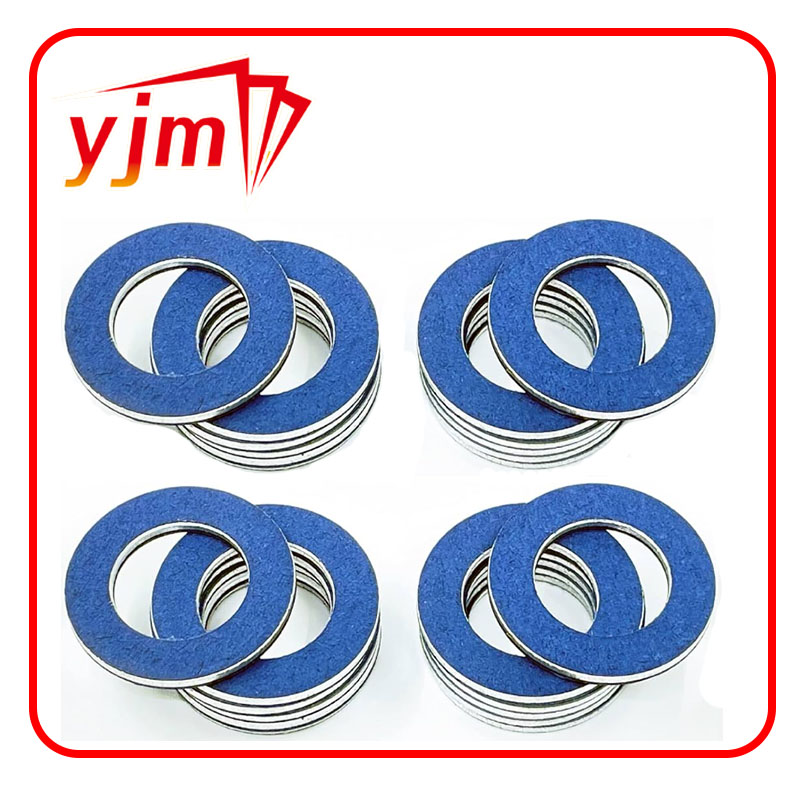Choosing the Ideal Gasket Material for Your Oil Pan Installation
Choosing the Best Gasket Material for Oil Pan Applications
When it comes to automotive and machinery maintenance, one often overlooked component is the oil pan gasket. The oil pan gasket serves a crucial role in ensuring that the engine oil remains contained within the pan, preventing leaks that can lead to various problems. Selecting the right gasket material is vital for maintaining engine integrity and performance. In this article, we will discuss the best gasket materials for oil pans and how to choose the right one based on your needs.
Understanding Oil Pan Gasket Functions
The primary purpose of an oil pan gasket is to create a reliable seal between the oil pan and the engine block. This seal not only prevents oil leaks but also helps maintain optimal oil pressure within the engine. Leaking oil can lead to low oil levels, which increases friction and wear on engine components. Additionally, oil leaks can create hazardous conditions on the road, making effective sealing paramount.
Common Gasket Materials
1. Rubber Rubber gaskets are flexible and can provide an effective seal for oil pans. They are resistant to oil and high temperatures, making them a popular choice for many automotive applications. However, one downside of rubber gaskets is that they can degrade over time, especially if exposed to extreme heat or harsh environmental conditions. Regular inspection and timely replacement are necessary to ensure reliability.
2. Silicone Silicone gaskets offer even greater flexibility than rubber. They can withstand higher temperatures and are particularly resistant to oils and other automotive fluids. Silicone gaskets are often utilized in high-performance engines or applications where heat dissipation is critical. Despite their advantages, silicone gaskets can be more expensive than traditional rubber alternatives.
3. Composite Materials Composite gaskets are made from a blend of materials, including rubber, silicone, and fiber. This combination offers enhanced durability and resistance to oil and temperature variations. Composite gaskets are designed to provide a superior seal, accommodating imperfections in the mating surfaces of the oil pan and engine block. They are a common choice for both standard and performance engines.
4. Steel and Metal Sandwich Gaskets For certain heavy-duty applications and high-performance engines, metal gaskets provide exceptional strength and stability. Often made from aluminum or stainless steel, these gaskets can endure extreme temperatures and pressure. However, they may require more precise machining for proper sealing, making them less suitable for standard applications.
best gasket material for oil pan

5. Fiber Gaskets Fiber gaskets, made from compressed fibers and resin, are often used in conjunction with other materials. These gaskets are relatively inexpensive and can handle moderate temperatures and pressures. While they are effective for less demanding applications, they may not be suitable for high-performance engines or extreme conditions.
Factors to Consider When Choosing Gasket Material
1. Temperature Resistance It's essential to choose a gasket material that can withstand the operating temperatures of your engine. High-performance engines may require materials like silicone or metal, while standard engines might perform well with rubber or composite gaskets.
2. Chemical Compatibility Ensure that the gasket material is compatible with the engine oil and any other fluids it may encounter. Oil-resistant materials are critical for maintaining seal integrity over time.
3. Vehicle Type and Use The type and use of your vehicle will influence your gasket material choice. For instance, if you’re working on a race car or a performance vehicle, investing in high-end silicone or metal gaskets is advisable. Conversely, for a daily driver, a rubber or composite gasket may suffice.
4. Cost vs. Performance Budget constraints are always a factor in vehicle maintenance. While it may be tempting to choose the lowest-priced option, it's essential to consider the long-term performance and reliability of the gasket. A more expensive gasket may save you money in the long run by preventing leaks and associated repairs.
5. Installation and Maintenance Some gasket materials are easier to install than others. Be sure to consider your mechanical skill level or consult with a professional mechanic when replacing an oil pan gasket.
Conclusion
Choosing the best gasket material for your oil pan is critical to engine performance and longevity. By understanding the various materials available and evaluating factors such as temperature resistance, chemical compatibility, and overall cost, you can make an informed decision. Whether you opt for rubber, silicone, composite, metal, or fiber, ensuring that you have a reliable oil pan gasket will help maintain your engine's health and performance for years to come.
-
Cassette Seal: Integrated Solutions for Heavy Duty
News Aug.29,2025
-
Premium Automotive Oil Seals Suppliers | Durable & Precision
News Aug.28,2025
-
Oil Drain Plug Washer Reusable Types
News Aug.22,2025
-
Oil Drain Plug Replacement Guide
News Aug.22,2025
-
Heavy Duty Seal Waterproof Features
News Aug.22,2025
-
Engine Oil Seals Installation Guide
News Aug.22,2025
-
Seal Oil for Sale High Temperature Grade
News Aug.22,2025
Products categories















